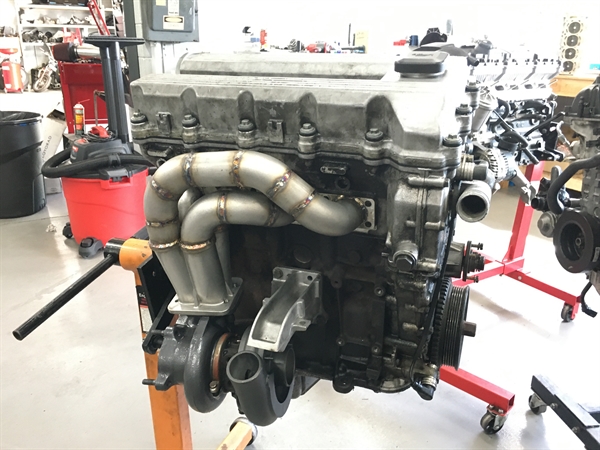Key Features to Seek When Buying an Engine for Automotive Applications
When considering the acquisition of an engine for automotive applications, several crucial features require cautious assessment to make sure ideal efficiency and performance. From power and efficiency capacities to fuel adherence, resilience, and effectiveness to exhausts standards, each facet plays a critical role in figuring out the engine's suitability for certain auto demands.
Power and Performance
When picking a vehicle engine, purchasers prioritize power and efficiency to ensure optimum driving experience and effectiveness. The power outcome of an engine, usually gauged in horse power (HP) or kilowatts (kW), dictates the velocity, leading rate, and general capabilities of a lorry. Greater power rankings generally lead to quicker acceleration and better performance, especially throughout surpassing or carrying hefty tons. Performance, on the other hand, encompasses a wider range of attributes, consisting of gas effectiveness, discharges, integrity, and total driving characteristics. A well-performing engine not just delivers power successfully but likewise operates smoothly across various rate arrays and driving conditions.
In addition, variables such as engine turbocharging, hybrid, and variation technologies play substantial roles in boosting both power and efficiency levels. Inevitably, picking an engine that offers a potent combination of power and performance makes certain a reliable and rewarding driving experience.
Gas Effectiveness
Enhancing fuel effectiveness is a critical consideration for customers when evaluating vehicle engine alternatives. Modern engines with attributes like straight fuel shot, turbocharging, and variable valve timing can dramatically enhance gas performance by enhancing combustion procedures and minimizing energy loss.

Durability and Integrity
Attaining long-lasting efficiency and trustworthy operation is vital for customers reviewing the resilience and dependability of automobile engines. When taking into consideration an engine for automotive applications, resilience describes the engine's capacity to hold up against wear, tension, and extreme operating problems over an extensive duration. Integrity, on the various other hand, implies that the engine can continually do its desired function without unexpected break downs or failures.
Customers must search for engines constructed with high-grade products and precise design to guarantee long life. Elements such as crankshafts, bearings, and pistons ought to be resilient to deal with the engine's power outcome without premature wear. Furthermore, engines equipped with advanced air conditioning systems, efficient lubrication, and durable filtering mechanisms often tend to show greater degrees of integrity.
Routine maintenance and adherence to manufacturer referrals are likewise vital consider maintaining an engine's longevity and dependability. By complying with maintenance schedules, making use of recommended fluids, and dealing with any type of concerns immediately, customers can take full advantage of the life-span and efficiency of their automobile engines. Ultimately, prioritizing resilience and integrity in engine choice can bring about an extra satisfying ownership experience with fewer unforeseen disruptions.
Emissions Compliance
Making sure compliance with exhausts regulations is a critical facet of evaluating vehicle engines for eco conscious customers. With boosting problems about air top quality and ecological impact, stringent discharges criteria have actually been put in place internationally to decrease hazardous pollutants released right into the ambience. When purchasing an engine for automotive applications, it is important to consider its discharges compliance to decrease the carbon impact and follow legal demands.
Modern engines are furnished with advanced discharge control technologies such as catalytic converters, exhaust gas recirculation (EGR) systems, and discerning catalytic reduction (SCR) to lower dangerous exhaust gases like nitrogen oxides (NOx), carbon monoxide gas (CO), and hydrocarbons (HC) These systems play an important duty in guaranteeing that the engine fulfills the defined exhausts criteria and runs within acceptable limitations.

Cost-effectiveness
When thinking about vehicle engine acquisitions, assessing cost-effectiveness is paramount for customers looking the original source for both efficiency and value. It encompasses the total expenses connected to maintenance, fuel usage, and potential fixings over the engine's lifespan.
One key element of cost-effectiveness is fuel effectiveness. Engines that are created to take full advantage of fuel economy can bring about considerable cost savings in time, specifically for individuals who drive frequently or over fars away. Additionally, thinking about the schedule and affordability of extra Look At This parts and servicing can add to the general cost-effectiveness of an engine. Ensuring that upkeep and repair services are available and sensible can prevent unforeseen financial burdens down the line.
Final Thought
In verdict, when purchasing an engine for automotive applications, it is crucial to consider vital features such as power and performance, fuel performance, longevity and dependability, discharges conformity, and cost-effectiveness. These aspects are vital in ensuring that the engine fulfills the requirements of the vehicle and runs efficiently in various driving problems linked here - bmw 318ti. Making a notified decision based upon these standards will eventually lead to a successful and efficient vehicle engine acquisition
From power and efficiency abilities to sustain adherence, longevity, and efficiency to emissions criteria, each facet plays a crucial role in establishing the engine's viability for specific automotive needs. Engines made to run on alternative gas such as electrical power, crossbreed systems, or biofuels can provide enhanced fuel economic situation and lower exhausts compared to traditional fuel or diesel engines. Consumers should meticulously take into consideration the gas efficiency rankings and modern technologies incorporated right into automobile engines to make informed getting choices that straighten with their top priorities for cost savings and sustainability.
When thinking about an engine for auto applications, durability refers to the engine's capacity to stand up to wear, anxiety, and harsh operating conditions over an extended period.In conclusion, when purchasing an engine for vehicle applications, it is critical to take into consideration essential functions such as power and efficiency, fuel longevity, dependability and performance, emissions compliance, and cost-effectiveness.